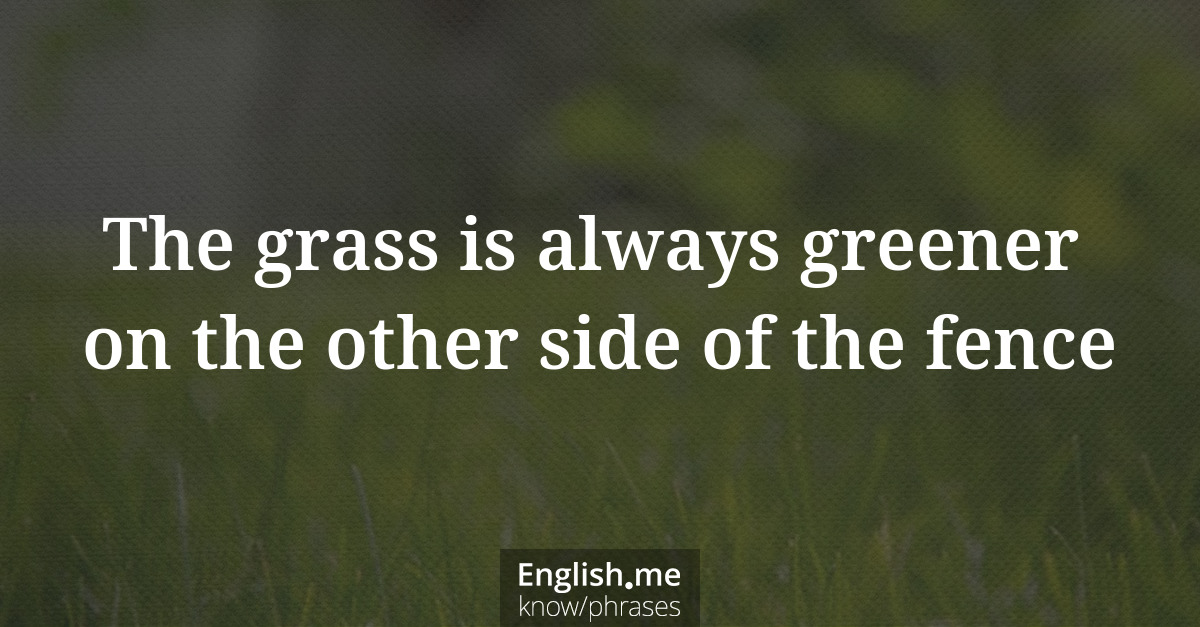Explaining "The grass is always greener on the other side of the fence"
Reviewed and edited by  Anwar Kareem 02/09/2025, 19:33
Anwar Kareem 02/09/2025, 19:33
English.me team member
 What does it mean?
What does it mean?

This phrase means that people often think other situations or places are better than their own, even if that may not be true. It expresses a tendency to be dissatisfied with what we have and to envy what others have.
 Tone
Tone
Reflective and slightly cautionary Origin
Origin
The sentiment traces back to the Roman poet Ovid about 2,000 years ago, who wrote "the harvest is always more fruitful in another man's fields". The modern English version with "fence" became popular in the early 1900s, inspired by imagery of cattle looking over fences at supposedly greener pastures.
 Examples of usage
Examples of usage
- She always talks about moving to a big city, but sometimes the grass is just greener on the other side of the fence.
- He thought a new job would make him happier, but the grass isn't always greener on the other side.
- Before you decide to quit, remember that the grass is always greener on the other side of the fence.

 English
English español
español française
française italiano
italiano deutsche
deutsche 日本語
日本語 polski
polski česky
česky svenska
svenska Türkçe
Türkçe Nederlands
Nederlands